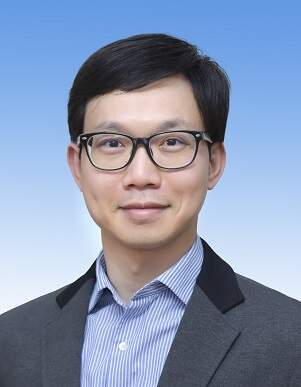
-
Haining Zhou, Ph.D, Prof.
-
Principal Investigator
National Laboratory of Biomacromolecules, IBP
Research Interests: Epigenetics
Email: zhouhaining@ibp.ac.cn
Tel:
Address: 15 Datun Road, Chaoyang District, Beijing, 100101, China
Chinese personal homepage
- Biography
-
2006 - 2010 B.S., Sun Yat-Sen University
2010 - 2016 Ph.D., Peking University
2016 - 2022 Postdoctoral researcher, Lab of Dr. Danesh Moazed, Howard-Hughes Medical Institute/Harvard Medical School
2022- Principle Investigator, Institute of Biophysics, CAS
- Awards
- Membership in Academies & Societies
- Research Interests
-
The importance of epigenetic research is that for multicellular organisms, each cell type has the same set of DNA, and this set of DNA determines the fate of cells and the function of cells by expressing different genes, so studying epigenetics is crucial for us to understand cell differentiation, on-body development, and individual responses to environmental stimuli.
1. Epigenetic regulatory mechanisms of gene expression
One of the key questions in epigenetics is how gene expression regulation is achieved and how gene expression regulation determines cell fate. Therefore, the research in this laboratory focuses on more comprehensive and in-depth disclosure of the epigenetic molecular mechanism of gene transcriptional silencing and the role of epigenetic regulatory systems in cell fate control through biochemistry, molecular biology, gene editing, second-generation sequencing, bioinformatics analysis and other means.
2. The mechanisms of the Transposable element control
Only ~2% of the DNA sequence of the mammalian genome is the coding regions, and there are many transposable elements and DNA sequences derived from transposable elements in the non-coding regions, accounting for ~50% of the genome; They can be transposed into a gene and make the gene inactivated, which can lead to the development of diseases, including tumors. The transposing of transposable elements is mainly dependent on its own transcription, reverse transcription, and insertion, and this has some similarities with the integration of RNA viruses into the host genome. Another research focus of this laboratory is to reveal the epigenetic mechanisms of transcription and transposition inhibition of transposable element, as well as the epigenetic mechanisms of cell resistance to viruses.
- Grants
- Selected Publications
-
1.Zhou H*, Feng W, Yu J, Shafiq T , Pualo J, Zhang J, Luo Z, Gygi S, Moazed D*. SENP3 and USP7 regulate Polycomb-rixosome interactions and silencing functions.Cell Rep. 2023 Apr 3; 42(4):112339. (*Corresponding)
2.Zhou H, Stein C, Shafiq T, Shipkovenska G, Kalocsay M, Pualo J, Zhang J, Luo Z, Gygi S, Adelman K, Moazed D. Rixosomal RNA degradation contributes to silencing of Polycomb target genes.Nature. 2022. 7904:167-174 (Reported inNature News & viewsentitled "An Added Layer of Repression for Human Genes") (Highlighted inNature Chemical Biologyentitled "Silenced by Degradation")
3. Wang X, Paulo J, Li X,Zhou H, Yu J, Gygi S, Moazed D. A composite DNA element that functions as a maintainer required for epigenetic inheritance of heterochromatin.Molecular Cell. 2021. 3979-3991.e4.
4.Zhou H*, Zheng T*, Wang T, Li Q, Wang F, Liang X, Chen J, Teng J. CCDC74A/B are K-fiber crosslinkers required for chromosomal alignment.BMC Biology. 2019. 17 (1), 73
5.Zhou H, Wang T, Zheng T, Teng J, Chen J. Cep57 Is a Mis12-interacting Kinetochore Protein Involved in Kinetochore Targeting of Mad1-Mad2.Nature Communications. 2016. 7:10151.
6. He R*, Huang N*, Bao Y,Zhou H, Teng J, Chen J. LRRC45 Is a Centrosome Linker Component Required for Centrosome Cohesion.Cell Reports. 2013, 4:1100-1107.
7. He R*, Wu Q*,Zhou H*, Huang N, Chen J, Teng J. Cep57 Protein Is Required for Cytokinesis by Facilitating Central Spindle Microtubule Organization.Journal of Biological Chemistry. 2013, 20:14384-14390.
8. Wu Q*, He R*,Zhou H, Yu C, Zhang B, Teng J, Chen J. Cep57, a NEDD1-binding pericentriolar material component, is essential for spindle pole integrity.Cell Research. 2012, 12:1390-1401.
(From Haining Zhou, April 19, 2023)

